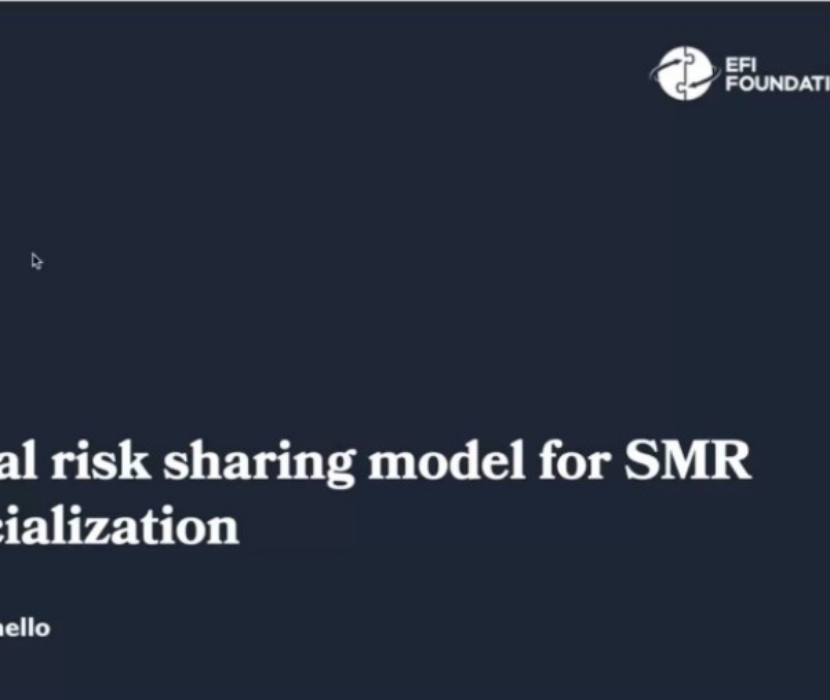
Energy Futures Initiative (EFI) CEO and Founder Ernest Moniz emphasized the importance of regional solutions to decarbonizing the economy, in a fireside chat with Patrick Woodcock, Commissioner of the Massachusetts Department of Energy Resources. Moniz also commented on the U.S. Department of Energy (DOE) reorganization, announced just two days prior, and spoke to the importance of recent private sector capital investments in nuclear fusion. The fireside chat was held on Friday, February 11, 2022, as part of the National Association of State Energy Officials (NASEO) 2022 Energy Policy Outlook Conference in Washington, D.C.
Commissioner Woodcock began the chat by asking Moniz about the recently announced DOE reorganization, a change prompted by the $62 billion in funds for clean energy and deployment programs from the recently passed infrastructure law, and DOE leadership trying to decide how best to spend it. DOE’s new leadership structure would create a new undersecretary position for infrastructure and consolidate the current two undersecretaries of science and energy into one position. Moniz said having one undersecretary for science and energy worked well during his time as Secretary of Energy and allowed greater synergies between both parts of the department.
DOE also plans to hire a “Clean Energy Corps” of 1,000 new workers to deploy projects using the infrastructure law funding. Moniz said this will be a “big, big job,” and that not only should these workers have project management experience but they should also know how government works. He said, “You can bring in 1,000 project managers; if they don’t have at least sufficient government experience in that group, it’s not going to work.” Moniz managed DOE Recovery Act funds during his tenure as Energy Secretary during the Obama Administration and was also quoted on the topic of DOE’s hiring in January in The Washington Post.
Professor Moniz and Commissioner Woodcock went on to discuss all the necessary elements that must be included in addressing the climate issues at hand and tacking carbon reductions. To this, Moniz said, “We continue to insist that the so-called ‘all-of-the-above approach’ is absolutely essential. We can’t afford to put aside, for emotional or ideological reasons, any tool that can help us reach decarbonization goals.” Amongst these tools discussed were diverse energy supply chains and distribution networks, regional coordination, worker involvement, and nuclear power. Moniz said that using an all-of-the-above approach “doesn’t mean every tool is going to be used everywhere” and emphasized the importance of regional solutions for decarbonization. Each part of the country has individualized needs and resources. He said we will need to deploy technologies that are ready but also continue to fund early-stage research for technologies that still need time, referencing that an EFI-Breakthrough Energy report on energy innovation is still relevant.
Moniz mentioned hydrogen hub funding in the infrastructure law and highlighted some of the EFI’s recent work on hydrogen. In 2021, EFI published three reports on hydrogen market formation in the Carolinas, the Ohio River Valley, and across the United States. “Hydrogen presents a massive infrastructure challenge,” Moniz said. “And we believe the way to go about hydrogen market formation in the United States is state and regional hubs.” Moniz also highlighted EFI’s collaboration with NASEO to produce the 2019 and 2020 U.S. Energy & Employment Report.
When addressing nuclear power, Moniz pointed out innovation in the nuclear space: “We’ve never seen the amount of innovation in the nuclear space as we have over the last few years.” But, Moniz cited a “chicken and egg” problem when juggling large amounts of private capital. “Nuclear is only one example or where we have a mismatch of private sector funds that are available for investment and investable projects with conventional returns,” he said. “New nuclear technologies, like small modular reactors and molten salt reactors, show promise but need to be pulled to the finish line of demonstration,” Moniz also pointed to the billions of dollars in recent private investment for nuclear fusion, saying, “When the private sector starts putting in that kind of money, you should start paying attention.”
Moniz’s remarks were covered in RTO Insider and received mentions on Twitter.
–Sonia Velazquez
(Share this post with others.)




